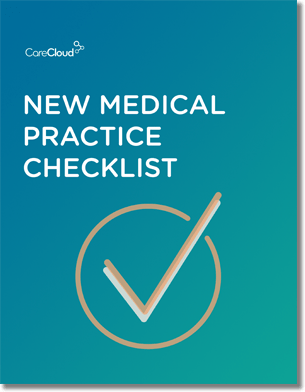The Supreme Court began hearing arguments on President Obama’s beloved Affordable Care Act, one of the most politically contested cases in recent memory, this past March.
More than a month has passed, and nail clippings litter hospital, practice, and insurance company floors. Professionals in the health IT field, however, may sleep comfortably, knowing their jobs won’t hang in the balance either way.
The statement seems counterintuitive. If the Supreme Court shoots down the ACA, several provisions relying on strong health IT foundation go down with it – namely HIEs, ACOs, and increased government transparency. While different from EHRs, the HITECH Act, and Meaningful Use, these areas have strong ties to health IT. In other words, their downfall could bring about negative consequences for the health IT field.
HIEs
Without a sufficiently strong IT framework, government-mandated statewide HIEs couldn’t be run properly. Earlier this year, a Harris Interactive/Health Day poll demonstrated nearly 60% of American adults want to keep the HIE provision in the healthcare law.
ACOs
Although not mandatory, EHRs are still a quality measure under health reform’s final ACO rule, though they’re not the only option. Participants can also use web-based practice reporting and other alternatives to report quality measures.
Transparency
Proposed rules mandated by the reform law increase the U.S. government’s focus on transparency and consumer access to data. The health care overhaul led to the creation of initiatives like HealthCare.gov, providing data on health insurance rate hikes organized by state, and online tools to help small businesses compare health plans.
Can the nationwide impetus develop health IT solutions to archaic healthcare problems dwindle as a result? It’s unlikely. Initiatives to bolster the health IT field bridge partisan divides.
Legislators generally acknowledge the importance of leveraging healthcare technology to upgrade the country’s healthcare system, so much so that little has been questioned about the American Recovery and Reinvestment Act’s $25.8 billion dollars in health IT investments and incentives.
Naturally, there will be repercussions for health IT if the Supreme Court strikes down health care reform – states canceling IT contracts for HIEs, the possible disappearance of the government’s ACO program and some of the act’s transparency proposals may be quickly forgotten. But all in all, health IT garners enough support from both sides of the fence to live on, with or without reform.
Carla Smith, executive vice president of HIMSS, told California Healthline that healthcare organizations will continue to “harness the power of IT” to improve healthcare, regardless of the court’s ruling.
Furthermore, the ARRA’s HITECH Act is separate from 2010’s ACA, so while the Supreme Court may reject provisions supporting the ideas above, hospitals and providers will continue implementing EHRs and working to attain Meaningful Use.
Health IT may very well be the only common ground in the healthcare debate, a powerful pivot point that can be used to unite lawmakers on both sides of the aisle to fix a broken healthcare system – regardless of political views.
Do you think health IT will brave the Supreme Court’s storm? For the latest in health IT for your medical practice, check out Power Your Practice today!

Do you know what you need when setting up a new medical practice?


